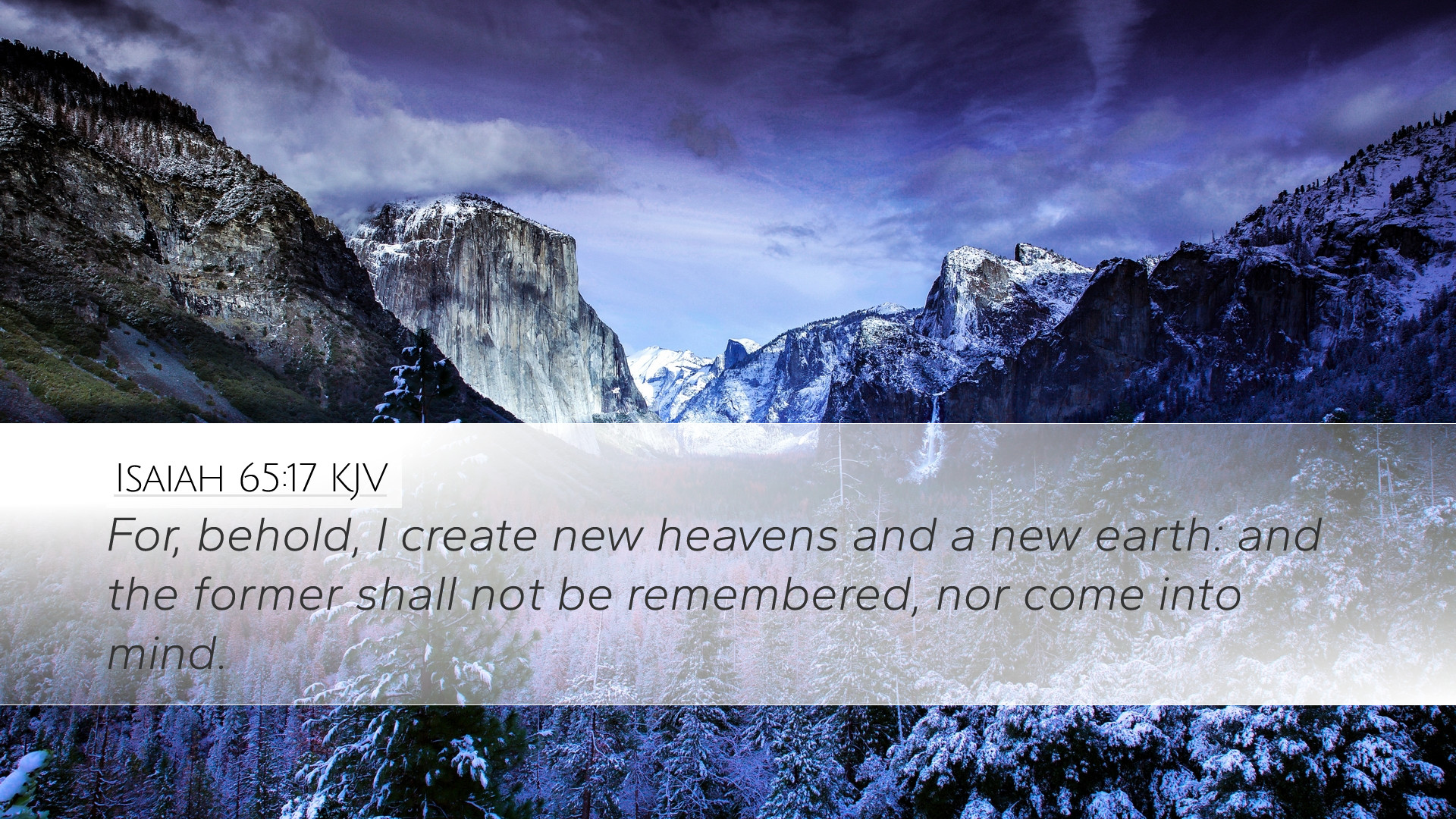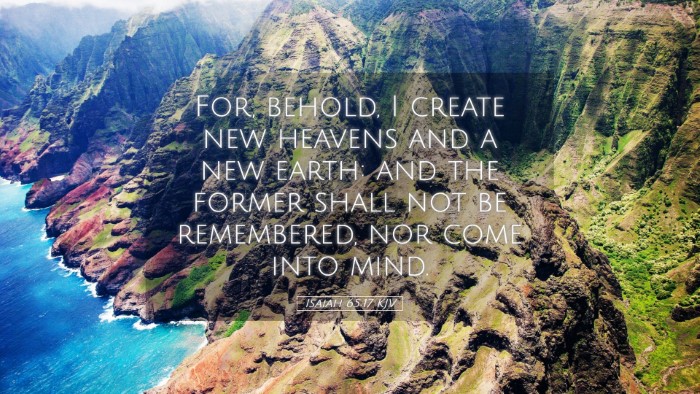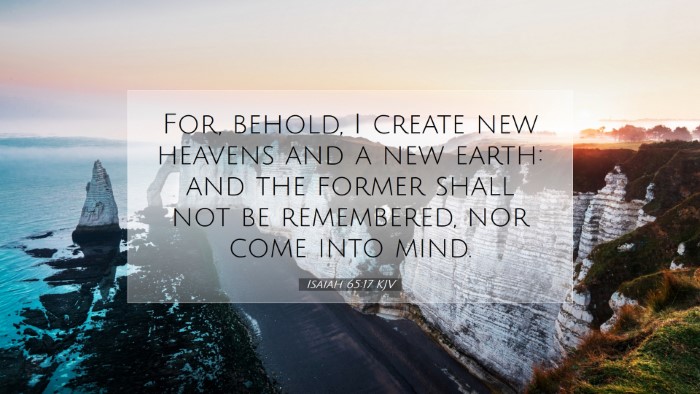Commentary on Isaiah 65:17
Verse: "For behold, I create new heavens and a new earth; and the former shall not be remembered, nor come into mind." (Isaiah 65:17, KJV)
Introduction
Isaiah 65:17 presents a profound proclamation of hope and renewal, emphasizing God's intention to create a "new heavens and a new earth." This verse serves as a pivotal element in the prophetic literature, reflecting the themes of restoration and divine promise. The diversity of interpretations by renowned theologians enhances our understanding of this significant passage.
Historical Context
The Book of Isaiah is generally divided into three primary sections, with the latter chapters (40-66) focusing on the themes of consolation and redemption for Israel. Isaiah prophesies at a time when the people of Israel faced judgment and exile due to their disobedience. In this context, the assurance of a new creation signifies God's mercy and the ultimate restoration of His people.
Theological Insights
Theologically, Isaiah 65:17 unveils several core concepts that resonate throughout Judeo-Christian thought:
- New Creation: The term "new heavens and a new earth" suggests a complete transformation of the created order. This conveys the idea that God's redemptive work will culminate in something wholly renewed.
- Divine Sovereignty: The promise indicates God's authority and ability to create anew. The phrase "I create" highlights His active role in shaping the future of humanity.
- Memory of the Former: The assurance that "the former shall not be remembered" invites readers to consider the magnitude of God's work. It emphasizes the totality of change that God will bring about, eclipsing past sufferings.
Commentary from Notable Theologians
Matthew Henry's Commentary
In his characteristic style, Matthew Henry reflects on the transformative power of God's promise. He notes that the language of "new heavens and a new earth" points towards the ultimate consummation of God's plan for His people. Henry underscores the hope that believers can possess, suggesting that this new creation will be characterized by righteousness and peace, as it stands in stark contrast to the corruption witnessed in the current age.
Albert Barnes' Notes on the Bible
Albert Barnes provides a detailed analysis of the phrase "new heavens and a new earth." He ties this prophetic vision to the New Testament, specifically referencing 2 Peter 3:13 and Revelation 21:1, which echo the concepts found in Isaiah. Barnes emphasizes that the "new earth" implies not merely a restoration of the old but a complete renewal that eliminates any vestiges of sin and sorrow. He asserts that this promise instills hope for both individual believers and the corporate body of Christ throughout history.
Adam Clarke's Commentary
Adam Clarke offers a rich exploration of the imagery used in this verse. He points out that the promise of a new creation signifies God’s fidelity to covenant and His intention to fulfill the aspirations of His people. Clarke articulates that this resurrection of creation is often indicative of the ultimate salvation and the establishment of God's kingdom, urging believers to set their sights on the eternal hope that lies ahead.
Practical Applications
The insights derived from Isaiah 65:17 can be applied in various contexts:
- Encouragement in Trials: Believers facing difficulties can find solace in the promise of a renewed creation, reminding them that current sufferings are temporary.
- Hope in Evangelism: The transformation that God promises serves as a compelling message for evangelism, inviting others to partake in the hope of a new life through Christ.
- Expectation of Future Glory: The church should eagerly anticipate the culmination of God's redemptive work, encouraging a perspective that values eternal over temporal.
Conclusion
Isaiah 65:17 remains a cornerstone of biblical eschatology that speaks to the heart of redemption and divine restoration. As we reflect on this verse, we are reminded of God's unwavering commitment to recreate and renew. It serves as an invitation for all believers to embrace the hope of what is to come—a new creation that transcends past sorrows and celebrates the fullness of God's presence.


